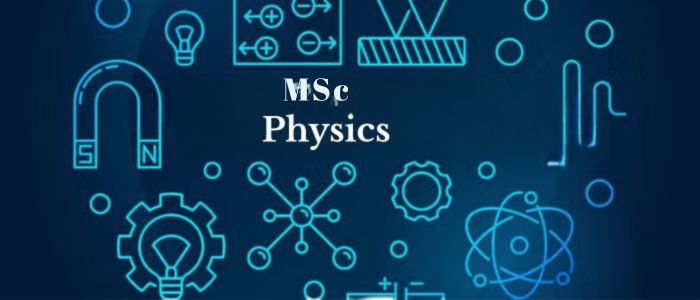Overview
The M.Sc in Physics provides students with an advanced understanding of fundamental principles in physics, such as quantum mechanics, thermodynamics, and electromagnetism, preparing them for careers in research and academia.


The M.Sc in Physics provides students with an advanced understanding of fundamental principles in physics, such as quantum mechanics, thermodynamics, and electromagnetism, preparing them for careers in research and academia.
Quantum Mechanics & Theoretical Physics
Electromagnetic Theory
Thermodynamics & Statistical Mechanics
Advanced Experimental Techniques
In Quantum Mechanics and Theoretical Physics, the focus lies on developing a deep conceptual and mathematical understanding of quantum systems. Core topics include the formulation and interpretation of the Schrödinger equation, the algebra of quantum operators, angular momentum and spin, as well as approximation methods such as time-independent and time-dependent perturbation theory. The course further explores advanced areas such as quantum entanglement, measurement theory, and an introduction to quantum field theory. Students are also introduced to mathematical tools essential for theoretical physics, such as group theory, differential geometry, and variational principles.
Electromagnetic Theory builds on foundational concepts by analyzing the behavior of electric and magnetic fields through Maxwell’s equations. The curriculum covers both static and dynamic electromagnetic fields, boundary value problems, and the propagation of electromagnetic waves in various media. It also includes the use of potentials and gauge invariance, and delves into topics such as radiation, waveguides, and relativistic electrodynamics, preparing students for applications in areas like photonics, antennas, and quantum electrodynamics.
Students learn the art of translation, focusing on the challenges of transferring Tamil literary works into other languages while preserving their cultural nuances and literary value. The course also includes an introduction to literary criticism, exploring various critical theories and their application to Tamil texts. Students gain the skills needed to analyze, interpret, and critique Tamil literature from multiple perspectives.
The Advanced Experimental Techniques component ensures that students gain hands-on proficiency with modern instrumentation and measurement methodologies. This includes training in high-precision techniques such as interferometry, spectroscopy, and cryogenics, as well as in the use of oscilloscopes, lock-in amplifiers, and data acquisition systems. Emphasis is placed on experimental design, signal analysis, error propagation, and the interpretation of results. Through laboratory work and independent projects, students learn to bridge theoretical predictions with empirical observations, developing skills essential for research in both academic and applied settings.